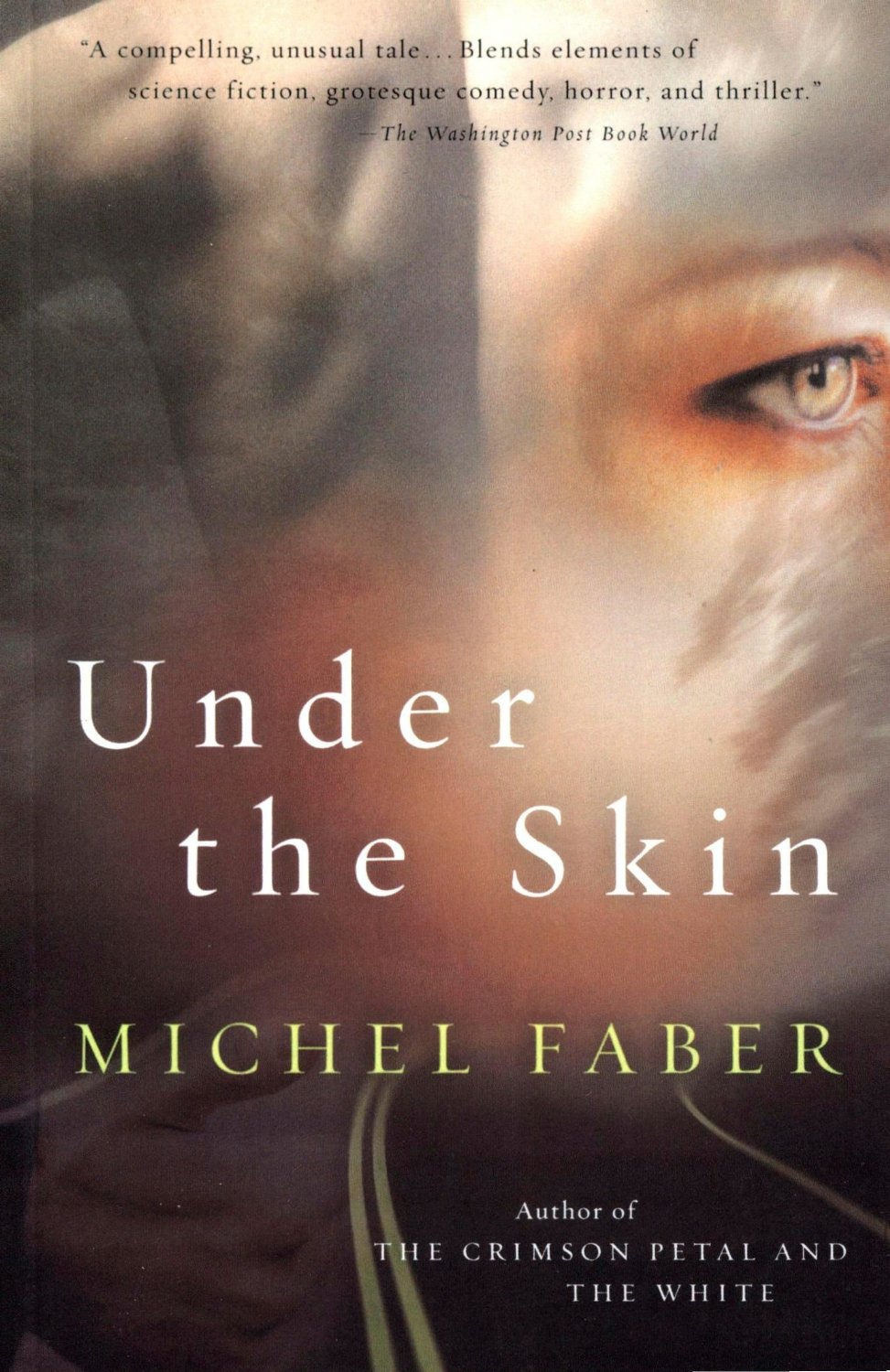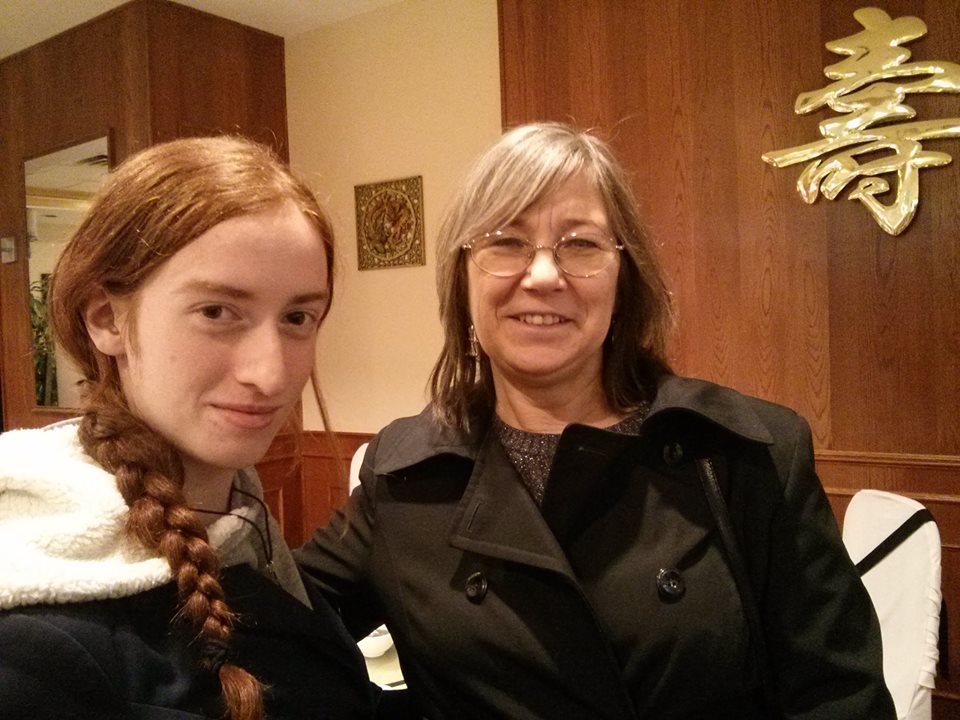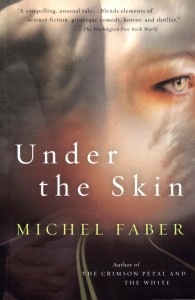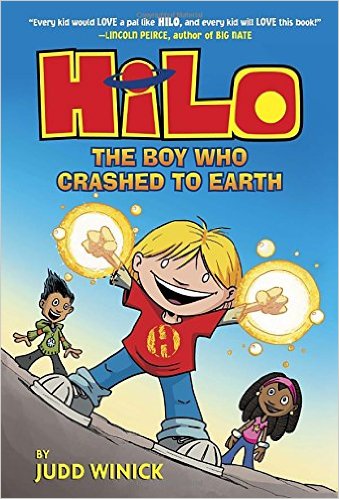
Review: Under the Skin, by Michel Faber
Hailed as “original and unsettling, an Animal Farm for the new century” (The Wall Street Journal), this first novel lingers long after the last page has been turned.
Described as a “fascinating psychological thriller” (The Baltimore Sun), this entrancing novel introduces Isserley, a female driver who picks up hitchhikers with big muscles. She, herself, is tiny–like a kid peering up over the steering wheel. Scarred and awkward, yet strangely erotic and threatening, she listens to her hitchhikers as they open up to her, revealing clues about who might miss them if they should disappear. At once humane and horrifying, Under the Skin takes us on a heart-thumping ride through dangerous territory–our own moral instincts and the boundaries of compassion. A grotesque and comical allegory, a surreal representation of contemporary society run amok, Under the Skin has been internationally received as the arrival of an exciting talent, rich and assured.
With elements that could have made for a good story if they were developed enough, Under the Skin is a book that tries to make a point, but ends up leaving no impression on the reader.
The book starts off setting up a very good concept: a young woman named Isserly drives along the lonely Scottish highways, picking up muscular male hitchhikers, and lying to them about herself, drawing them into a conversation about who would miss them if they would disappear, before knocking them out with a drug and taking them back to an isolated farm. At the beginning of the novel, we’re shown that she quite enjoys this; gets a rush from it, in fact. She’s also in near constant pain and has surgical scars all over her body. At this point, the book is a good enough read, though not spectacular, and sets itself up to be a nice character study of a female serial killer who seduces victims before doing off with them. If it had stayed like this, I probably would have liked the book a lot more.
Unfortunately, the truth will out, and in this case the truth is that Isserly is not just a psychotic young woman: she’s actually a sort of monkey, a species yet unknown to humans, who had her body surgically altered so she could pick up humans for a company that sells human meat to her species, who consider it a delicacy. She brings back muscular men who then get given steroids for a month to make them more muscular before being killed and shipped off to Isserly’s home. The inclusion of this rather bizarre supernatural twist, which comes quite early in the novel, upends what was otherwise shaping up to be a rather nice premise and the novel goes in a different direction from thereon.
The book reads like it was intended as a vegetarian manifesto, with the point driven in further when a young man, son of the company’s owner, comes and preaches to Isserly about the dangers of eating meat and how he suspects humans are an intelligent species. Here, however, it fails for one major reason: it’s implied that Isserly’s species doesn’t naturally eat meat and that doing so is causing health problems for them. That’s all right for Isserly’s species, but means the book doesn’t apply at all to humans; for whichever reason vegetarians remove meat from their diet, there’s no denying that we need the protein it gives and that our bodies are set up for an omnivorous diet. In this way, the book fails to be applicable to the reader. Partly because of this, as well, the premise fails to grab the interest of the reader or to create any drama; all of this comes out by the middle of the book, causing the second half of the novel to plod along without really going anywhere.
With so much attention given to the book’s vegetarian philosophy, the plot is left to meander by the wayside, and as a result the book is a fairly boring read. The scenes with Isserly talking to the hitchhikers are the best in the novel: each one does build up some drama as we sympathise with the humans who might lose their life. Each one also includes a short section from the humans about how they view Isserly, which serves to characterise them very well, as well as giving some character to Isserly, showing how she presents herself to others in the course of their job. There aren’t quite enough of these scenes to save the novel, however, and the drama and questions these scenes raise about Isserly’s motives is completely lost when we learn what she’s doing, taking out much of what made these scenes enjoyable in the first place.
However, even taking out the problems with the main premise, the book falls flat on a few points. None of the characters are very well fleshed-out; Isserly in particular is never explored in much depth, leaving much of her personality a mystery to the reader. This was done partly deliberately, as it’s implied Isserly shuts herself off from others, but leaves her as a relatively bland protagonist. Isserly goes through no appreciable character growth, meaning the reader is denied seeing how her experiences change and affect her. Exactly who Isserly’s species is and where they come from is never explored, and the information we are given only raises more questions than it answers. We know it’s somewhere with a coastline, as they send a ship to pick up the human meat, so they most likely live on an island. It’s also stated, however, that they polluted their home so much that nothing can grow; there are no plants to produce oxygen and the air above is so bad they were forced under ground to survive and to generate their own oxygen. Any island with a pollution problem that bad would have been spotted by someone and explored; logically, then, humans should already have been aware of Isserly’s species, yet Isserly takes great pains to avoid letting on to the humans she picks up that she’s not one of them. Somehow, however, humans are known to Isserly’s species, and they’re familiar enough with human appearances to surgically alter their own people to look human, with the resemblance being so good that to humans, Isserly just looks a bit ugly. Questions about how it is possible they remain hidden from humans stay with the reader even after the book is finished, detracting further from the novel’s overall quality.
The ending leaves on a rather low note that does nothing to resolve the books main plot, what little there is. The issue of how Isserly sees humans isn’t resolved, nor is anything done about the corporation that’s selling human meat. With no resolution and nothing to tie it together, the book ends up reading as a collection of scenes and events related to each other, but failing to tell any sort of story. The book has good pacing and dialogue, but with nowhere for any of it to go and nothing for it to really work up to, these points don’t work much in the book’s favour. The day after finishing the book, I had already nearly forgotten it, and for all the staying power it had, I might as well not have read anything at all.
Overall rating: 1.5/5





One Comment
Pingback: